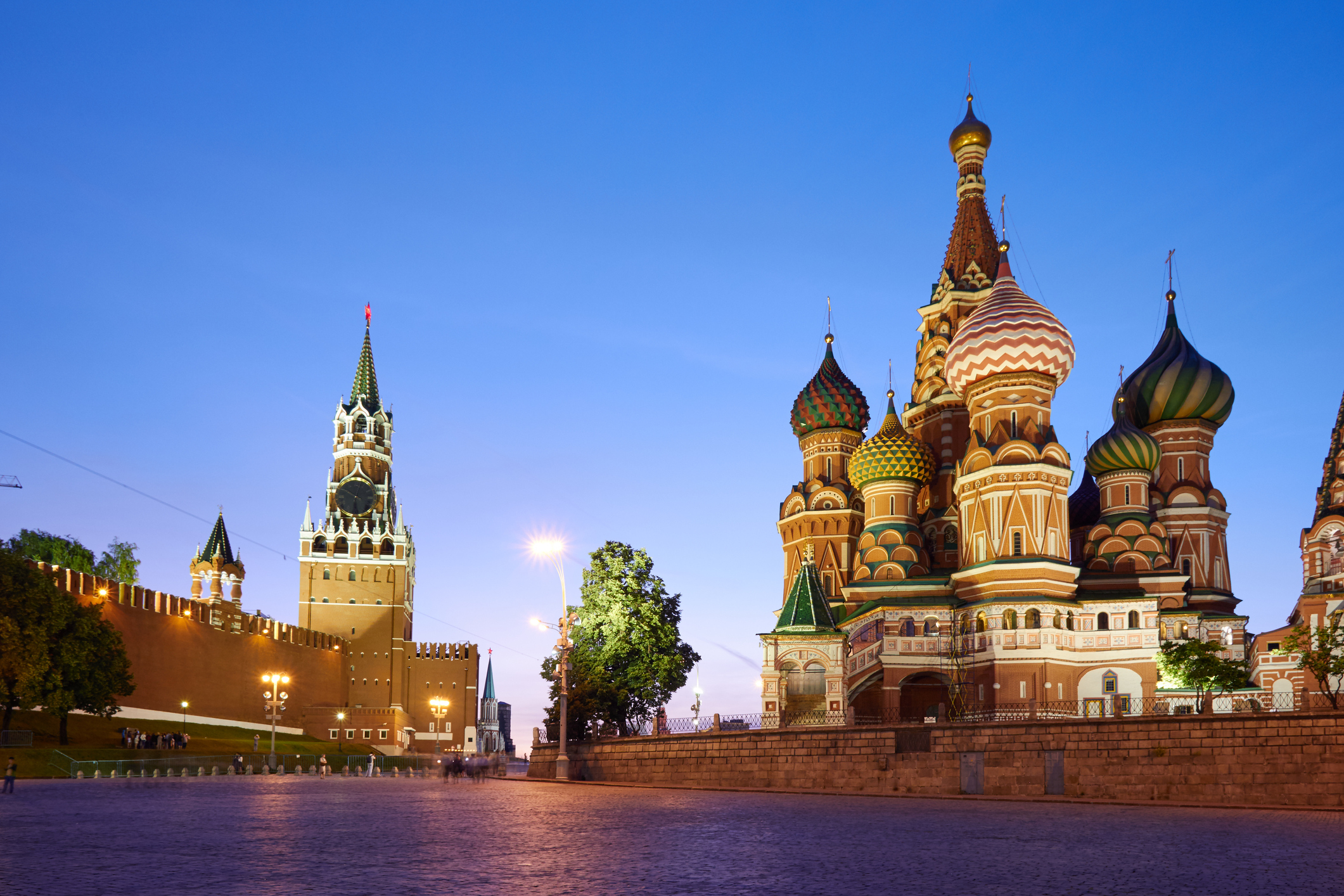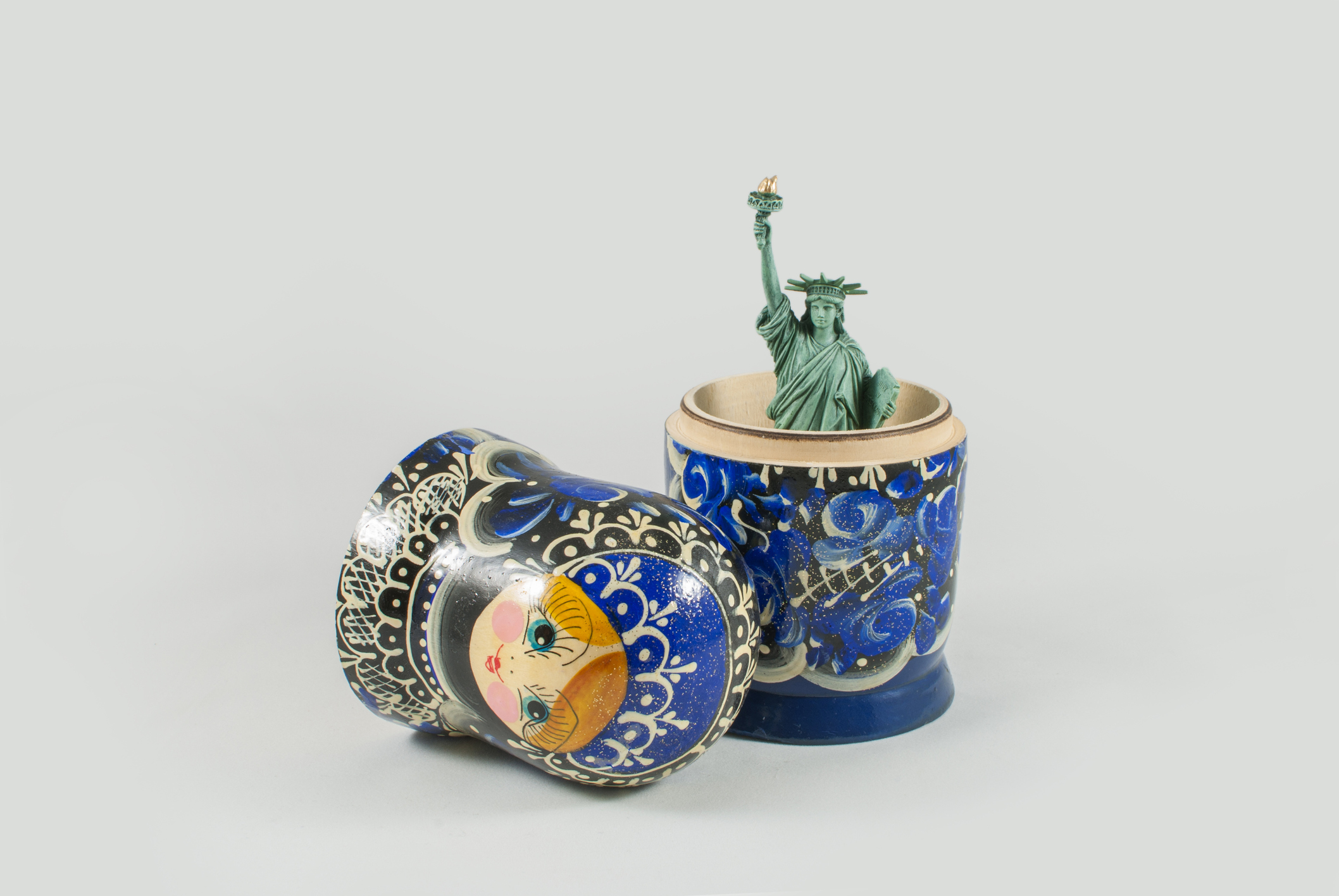Afghanistan, et al., for the record
Hating Russia Is Not the Point

Principled critique of Communism or Putinism shouldn't drift into national slander.
I first came across the young Anne Applebaum through a brave and unsettling essay she wrote for The New Criterion in 1996 entitled “A Dearth of Feeling.” This affecting piece took elite opinion to task for ignoring the crimes and sufferings that accompanied Communist rule everywhere its malign ideological vision was implemented. The truth about Communism—the penury that accompanied it; the massive system of informants that made truly private life impossible; the coercion, violence, and mendacity that flowed inexorably from its ideological DNA; and the systematic suppression of free intellectual and religious life—was relegated to the memory hole by progressive elites eager not to reflect on what Communism revealed about “modernity without restraint” (that wonderfully suggestive term is Eric Voegelin’s). In her essay, Applebaum gave rich and vivid examples of “really-existing socialism” at work and exposed a series of influential scholars, from Robert Thurston to J. Arch Getty, who minimized the crimes of Communism or seemingly sympathized with its “progressive” goals. Her essay ended on a searing note:
As long as Communism is not seen, along with National Socialism, as one of the great ills of our century, Californians and others will grow more inclined to see the Cold War as a waste of time and the West as a fiction. In the end, it is we Americans who will not understand our past, we who will not understand why the world perceives us as it does, we who will not understand how our country came to be the way it is. In the end it is we who will wake up and realize that we do not know who we are.
I would come equally to esteem Applebaum’s 2003 book Gulag: A History. It drew on many of the insights of Soviet camp survivors and memoirists such as Dmitry Likhachev and Lev Razgon in light of revelations from the Soviet archives, while owing at the same time a clear moral debt to Aleksandr Solzhenitsyn’s incomparable The Gulag Archipelago. Applebaum would continue to chronicle soul-crushing tyranny in the Communist world in books such as Iron Curtain: The Crushing of Eastern Europe, 1944-1956 (2012) and Red Famine: Stalin’s War on the Ukraine (2017).
But a clear shift in Applebaum’s perspective was becoming discernable. In her later works, the crimes of the Soviet regime (and its satraps in the satellite countries of east-central Europe) became more and more “Russian” and less and less ideological, “Soviet,” or Communist in origin or motivation. Collectivization, and the murderous famine and terror that accompanied it from 1929 to 1934 (most severely in Ukraine in 1932-1933), was more a Russian crime against ethnic Ukrainians than a criminal design of ideological origin directed against the independent Ukrainian and Russian peasantry and the largely nomadic peoples of Kazakhstan (although some ambiguity remained in her position).
In Applebaum’s recent work, Communism risks getting the free pass that she rightly warned against and lamented in 1996. Her move from vigorous anti-Communism to intense hostility toward historic Russia is the default position of Western elites today: Reading the press or listening to our less than historically literate intellectual and political elites, one would be hard pressed to know that millions upon millions of ethnic Russians also died under the Communist juggernaut or spent years suffering in Soviet camps and prisons.
A Polish national, as well as an American one, and married to Radek Sikorski, the foreign minister of Poland who’s part of its new “rainbow coalition” of liberal-left parties, Applebaum grew ever more visceral in her loathing of conservative governments in Poland and Hungary, governments which defended national sovereignty, traditional moral values, and opposed open borders and the aggressive secularism encouraged by postnational European elites. Reading her 2020 book, The Twilight of Democracy: The Seductive Lure of Authoritarianism, one is led to believe that Poland and Hungary were already ugly autocracies, if not open dictatorships, enemies of “democracy” as she and her friends (and fellow partisans) had redefined it. Despite her clear and capable prose and considerable erudition, Applebaum’s tone has become shriller. In addition, her intellectual framework is increasingly bereft of the nuances and distinctions that are essential to measured political judgment.
In her recent 2024 “Introduction” to a reissue of Hannah Arendt’s classic work The Origins of Totalitarianism, Anne Applebaum has radically distorted one of the great political philosophers of the twentieth century. Arendt’s 1951 book (with later emendations), which famously addressed the totalitarian effort to remake human nature through a systematic assault on common life, common sense, and lived experience turns out to be in Applebaum’s hands…a prescient anticipation of Putin’s Russia! Arendt wrote with great foreboding about “ideology and terror” as a “novel form of government” (her equivalent of Orwell’s imagining “a boot stamping on the human face forever”). In her strange new introduction, Applebaum reinvents the book as anticipating a great contemporary global contest between pristine liberalism (she never asks if “saving democracy”—and various unpopular progressive nostrums through coercive means—is even remotely “liberal”) and an increasingly diabolical coalition of autocracies—China, Russia, Iran, Belarus, and Cuba—which includes “MAGA Republicans” according to an excerpt from Applebaum’s soon-to-be published book, Autocracy, Inc.: The Dictators Who Want to Rule the World. She sees no differences between Trump, on the one hand, and Xi and Putin, on the other.
Applebaum shows no introspection, no capacity to step back and self-critically examine her own positions. People like her encouraged the most anti-Russian elements in Ukraine to seize power during the Maidan Revolution, thus severing the teetering unity of a 50-50 country. One is at least obliged to ask if NATO expansion was a wise and prudent move or whether it would be opposed by any Russian government, however liberal or autocratic. Moreover, Putin’s Russia is hardly an ideological despotism, even if the regime has hardened considerably and prospects for civic freedom have declined precipitously since its invasion of Ukraine. Increased enmity with the West will not help in that regard.
But to appropriate Arendt’s classic work on totalitarianism for purposes alien to the original is dishonest, to say the least. To simply demonize Russia and to blame it exclusively for the crimes of Communist totalitarianism is to encourage permanent enmity between Russia and the West (or the woke imperium that is in the process of taking its place). To loudly encourage “regime change” in Russia, as Applebaum has done, is imprudent and may also push the world closer to World War III.
In the third volume of The Gulag Archipelago, Aleksandr Solzhenitsyn pleaded with his fellow Russians to take the legitimate grievances of Ukrainians seriously. If Ukrainians wanted to go their separate way (although Solzhenitsyn did not anticipate the implacable hostility to all things Russian that flows from the West Ukrainians—the Galicians—who set the tone for the new Ukraine) that decision must be honored. In the early nineties, the Russian Nobel Laureate also wrote that he would not let his sons fight if war broke out between Russia and Ukraine. But he always pointed out that the arbitrary borders between Russia and Ukraine established by Lenin in 1922 had to be renegotiated, and that Ukrainian nationalists were making strident claims to territory that was never historically Ukrainian (the interested reader can consult the documentation on Solzhenitsyn and Ukraine at Aleksandr Solzhenitsyn Center).
Solzhenitsyn’s concerns were not unreasonable or “extreme,” and ignoring them only weakens the legitimate claims of a sovereign Ukraine. One does not oppose the more unreasonable currents of Russian nationalists by endorsing extremist claims of the most unreasonable and aggressive Ukrainian nationalists. Historical judgment entails the ability to make appropriate moral and historical distinctions. Applebaum has, alas, long ceased to make them. In succumbing to a new untenable ideological Manicheanism, by becoming vehemently anti-Russian (and not just anti-Putin or anti-Soviet) rather than being the principled anti-totalitarian that she once was, Applebaum has paradoxically contributed to making it more likely that the massive crimes of Communism will be shoved down the memory hole. Indiscriminate hatred of all things Russian is no substitute for principled opposition to totalitarianism.
The American Mind presents a range of perspectives. Views are writers’ own and do not necessarily represent those of The Claremont Institute.
The American Mind is a publication of the Claremont Institute, a non-profit 501(c)(3) organization, dedicated to restoring the principles of the American Founding to their rightful, preeminent authority in our national life. Interested in supporting our work? Gifts to the Claremont Institute are tax-deductible.
Understanding our longstanding confusion
Gorbachev inherited an empire that was ready to dissolve.



